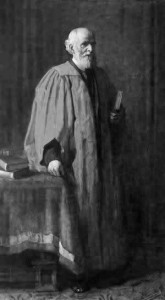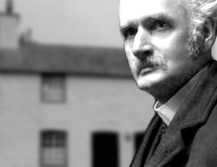Description
 Feel the learning and warmth of Henry Jones (1852-1922), the village shoemaker’s son from Denbighshire who rose through scholarships at Bangor Training College for Teachers and Glasgow University to hold chairs in philosophy at the universities of Bangor, St. Andrews and Glasgow and receive a knighthood. Ever proud of his lowly roots and his Welshness, Jones was early inspired by the authors of ancient Greece and Rome.
Feel the learning and warmth of Henry Jones (1852-1922), the village shoemaker’s son from Denbighshire who rose through scholarships at Bangor Training College for Teachers and Glasgow University to hold chairs in philosophy at the universities of Bangor, St. Andrews and Glasgow and receive a knighthood. Ever proud of his lowly roots and his Welshness, Jones was early inspired by the authors of ancient Greece and Rome.
This is apparent above all in his Essays on Literature and Education (1924), a brilliant set of essays on popular authors in the English language — Scott, Shakespeare, the Brownings — and on the purpose of education. Scott’s storytelling is compared to Homer’s; Shakespeare’s morality to Sophocles; the Brownings’ debt to Euripides and Aeschylus is stressed.
 The essay on education and citizenship still reads as fresh as it did when first published in 1917. Jones sees no educational content as more or less important than any other—Greek verbs and differential calculus can help to ‘liberate the possibilities of character’ in pupils. But when it comes to the importance of remembering the past and revelling in the richness of ancient literature, Jones is a classicist to the core. He opened his 1905 address to the subscribers of the Stirling and Glasgow Public Libraries, ‘The Library as a Maker of Character,’ with this long, inspirational quotation from Plato, taken from the moment when Socrates goes for a country walk with Phaedrus after meeting the young man with a book under his arm:
The essay on education and citizenship still reads as fresh as it did when first published in 1917. Jones sees no educational content as more or less important than any other—Greek verbs and differential calculus can help to ‘liberate the possibilities of character’ in pupils. But when it comes to the importance of remembering the past and revelling in the richness of ancient literature, Jones is a classicist to the core. He opened his 1905 address to the subscribers of the Stirling and Glasgow Public Libraries, ‘The Library as a Maker of Character,’ with this long, inspirational quotation from Plato, taken from the moment when Socrates goes for a country walk with Phaedrus after meeting the young man with a book under his arm:
‘I am a lover of knowledge,’ said the ancient sage, ‘and the men who dwell in the city are my teachers, and not the trees of the country; though, indeed, I do believe that you have found a spell with which to draw me out of the city, like a hungry cow before whom a bough or bunch of fruit is waved. For only hold up before me a book, and you may lead me all round Attica, and over the wide world.’







